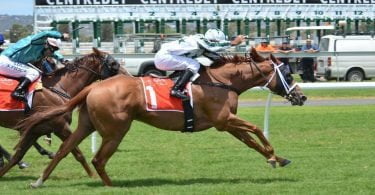Boxers can be the most delusional of folk when it comes to believing their own blustering mythology.
Boxers can be the most delusional of folk when it comes to believing their own blustering mythology. A sense of impregnability builds for the combatants throughout their career, predicated upon on a wave of felled adversaries, crazed adulation and adrenaline fuelled highs. In the squared circle they are all-conquering, able to arrest any mere trace of fear or anxiety. But it’s this very masquerade of invulnerability which too often is incompatible with the mundane rigours of everyday life.
The Roll-call of those pugilists, who subsequently suffer hardship after their fistic reigns cease, forms a withering denunciation of the balanced characters the sport of boxing both houses and forges. Former Lightweight Champion Alexis Arguello – alleged suicide, 2009; Former Heavyweight champion Sonny Liston – death by heroin overdose, 1970; Former Welterweight champion Arturo Gatti – Family-related homicide, 2009. These cases embody the nadirs of life after boxing; but it is beyond dispute that mental illness, domestic violence and substance abuse have been a trio of recurrent hazards, festering patiently in the retirement years for fighters of all generations. Hanging up the gloves is no mean feat.
Gladiator to socialised civilian
In contemporary times, perhaps no other boxer represents the pitfalls of the transition from gloved gladiator to socialised civilian, more so than the troubled tale of Britain’s own Ricky Hatton. Typifying the fearless, marauding action hero archetype, which the Boxing world depends upon for artless but pulsating dust-ups; Ricky tyrannically bestrode the Light Welterweight and Welterweight Divisions during the early 21st century. With a sunny demeanour, an arsenal of pub witticisms and a weakness for Guinness, the common man could empathise with the grounded Hatton. At his whim, the ‘lickle-lad’ from Manchester could command a legion of fervent supporters to his battlegrounds; he was idolised, but still, it could not sustain him.
In late 2009, Hatton was ousted from the sport that gifted him everything from his swollen chest of pride, to his existential sense of purpose, when Manny Pacquiao rendered him unconscious in a second round knockout with heart-rending recriminations. What followed was the disintegration of a life valued so highly by his enamoured public, but rated so abjectly by the crestfallen ex-champion. In fits of self-loathing, Hatton sought to reconcile the disastrous conclusion of his boxing career in the dubious embrace of spiralling alcoholism and substance abuse. His depression was so acute, that the candid Hatton admits that suicidal ideation almost consigned him to the sorrowful register of Boxing’s departed.
This backstory delivers us to the present, and Hatton’s recent bid for redemption by resurrecting his bygone occupation of trading punches. Imbued with renewed vigour and bereft of melancholy, Hatton had shed over four stone due to his salvation of boxing; a weight that became symptomatic of his internal grief. Caught in a bind, the punishing craft of boxing, suddenly presented a life of ambition once more, yet threatened the psychological cruelties of further defeats and permanent physical damage.
“You’re a failure”
It was a crusade which no one requested of him, only the niggling self-critiques of his own psyche. For worshippers and pundits alike, the consensus declared a comeback at the weathered age of 34 was foolhardy, but they cannot comprehend the rationale of the hopeless. In his own words “this fella on my shoulder everyday says to me ‘you’re a failure’, ‘you let everyone down’, so for me to get rid of him, it’s something that needs doing…it doesn’t matter what he or she says, it’s between my ears”; surely, an unwavering conviction that the most stringent of logicians would struggle to counter.
Inevitably, motivation and poignancy, could not coalesce to grant Ricky the fairytale denouement he so desired. Facing the disciplined but mediocre former world champion Vyacheslav Senchenko, Hatton was incapable of reanimating the impervious bulldog of old, fierce of arm and insurmountable of spirit. Three years had unravelled since his last outing, and an interim rife with vices had eroded his already depleted prowess. With his timing misplaced, his once vicious hooks limp and reserves run languid, Hatton’s defiance was extinguished with a body shot in the ninth round. Ironically, his coup de grace of the left hook was the very weapon he had wielded in banishing Kostya Tszyu and Jose Luis Castillo from the eminent tiers of professional boxing; now, ruthlessly leveraged against him.
In the aftermath of defeat, one constant remained in the unbroken chants of “There’s only one, Ricky Hatton”, his disciples reaffirming to their idol their enduring affection unspoilt by the agony of setbacks. But the truth could not be evaded. Ricky ‘Hitman’ Hatton, he of the bludgeoning body assault and suffocating close-combat excellence, was a folk hero dispelled; to be reminisced over, but not to be revisited. Ricky acknowledged this sour truth with a torrent of tears, steadily tracking the grooves of his contorted face, as he ghosted out of the undimmed cauldron that was the Manchester Arena.
Gung-ho tactics
So in retrospect, is it fair to chronicle the return of Ricky Hatton as an indisputable failure, and ill-fated from the outset? From a boxing perspective, the re-emergence was a catastrophe serving only to illuminate his physical decline and the shortcomings of his gung-ho tactics. Whilst, the saga depreciates his legacy as a paragon of the fistic arts, it did restate the draw of his name and the incredulous appeal his wayward but loveable character triggers in the masses.
Measuring by accomplishments, the likes of Lennox Lewis and Joe Calzaghe may outweigh the manic Mancunian’s exploits, but perhaps the true barometer of his legacy resides in the irrevocable popularity he elicited throughout his career. Perhaps only the comical and equally afflicted Frank Bruno can claim to have endeared himself to the British Public to a parallel extent. Remember, Hatton was a pied piper, rallying 4,000 rambunctious Brits into the MGM Grand for his showdown with the imperious Floyd Mayweather.
The coming months will evidence if the gamble was emboldening for his spirit; did the foray into the well-trodden path of boxing represent an exorcism of sorts, or will the defeat be greeted with another crippling slump in self-esteem for Hatton? The early signs are emboldening with Ricky lucidly accepting his downfall. “I needed to find out if I could mix it again at world level, and I got my answer. I can’t” he stoically surmised.
Whilst, his fanbase can relive the precious footage of Hatton at his valiant peak, it is with hope for a prosperous future that Ricky disembarks the famed boxing theatres of this world, into the anonymity of retirement. Let it be an existence free of the self-loathing and undue discredit that he has burdened before.
He need no longer fight for his future.








